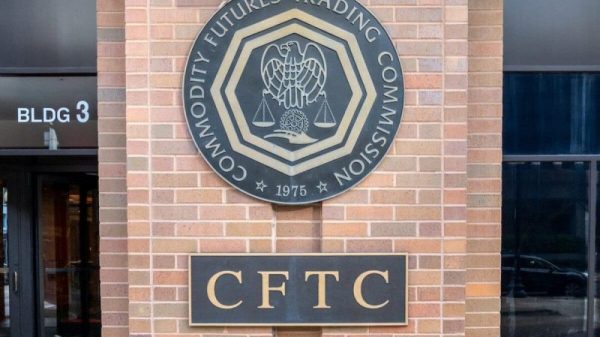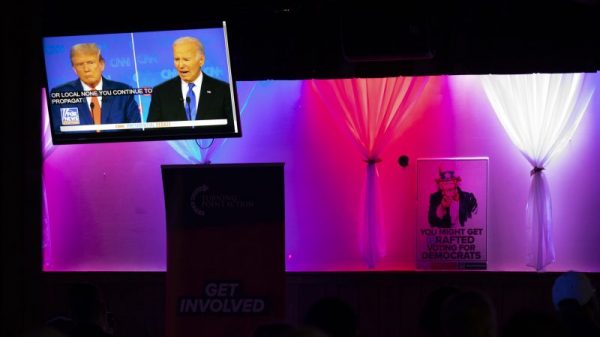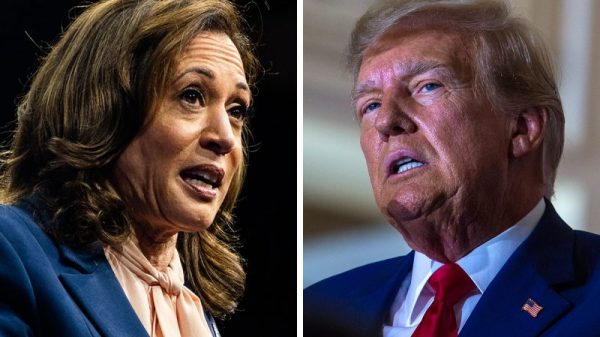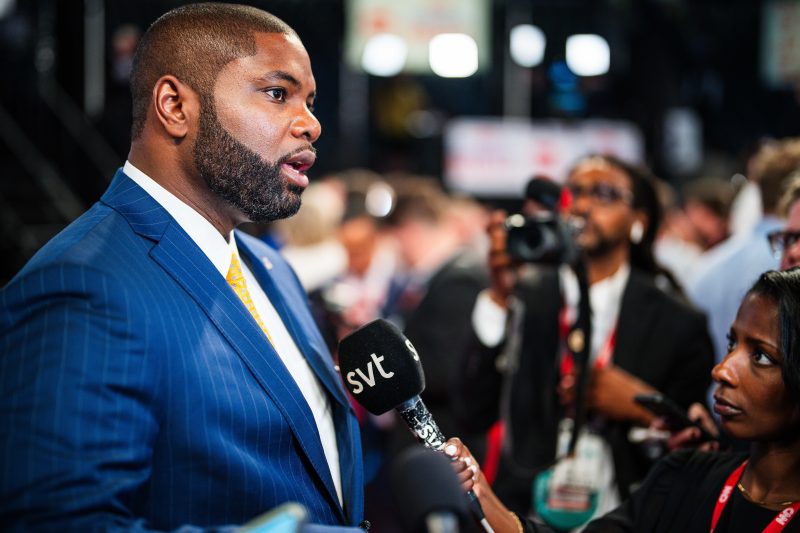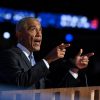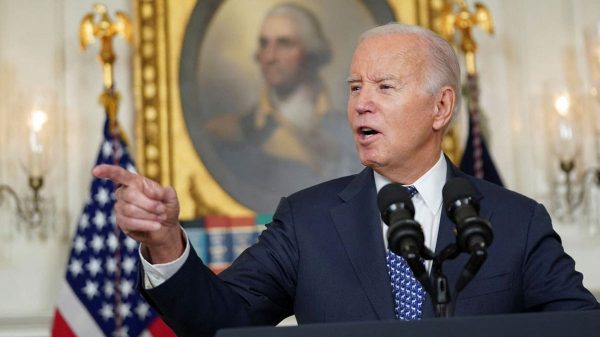The first night of last month’s Republican convention was centered on the sort of politics the party loudly eschews. The speakers included an array of supporters of former president Donald Trump who weren’t White or male or business leaders — representatives of other groups who were there, very clearly, to indicate that it is acceptable for Black people or Hispanics or union members to pull the lever for Trump.
Rep. Byron Donalds (R-Fla.) was one of those speakers. He is probably Trump’s most visible Black supporter, having effectively increased his profile among Trump’s base in recent years. He’s a cable-news fixture who, on Sunday, made the transition to broadcast for an appearance on ABC News’s “This Week.”
It didn’t go very well.
Among the news that occurred last week was Trump’s suggestion that Vice President Harris is some sort of race opportunist. During an interview at the National Association of Black Journalists convention, Trump claimed that Harris had been “Indian all the way” before “all of a sudden she made a turn” to identify as Black.
The California-born vice president is the daughter of a Black father from Jamaica and a South Asian mother from India. She graduated from the historically Black Howard University in 1986.
“This Week” host George Stephanopoulos asked Donalds why Trump was “questioning” Harris’s identity. Trump has gone to great lengths to attempt to appeal to Black voters, which might be aided by presenting Harris as inauthentically Black. In a sense, that was the answer that Donalds offered.
“If we’re going to be accurate, when Kamala Harris went into the United States Senate, it was [the Associated Press] that said she was the first Indian American United States senator,” he said in his response. “It was actually played up a lot when she came into the Senate. Now she’s running nationally. Obviously, the campaign has shifted. They’re talking much more about her father’s heritage and her Black identity.”
The contrast between what Donalds says the Harris campaign is talking about “much more” and an old AP article is not just apples-to-oranges; it’s imaginary apples being compared with another store’s oranges.
Donalds’s answer mostly focused on criticisms of the Biden administration, but Stephanopoulos pressed him on the question of Trump’s attack on Harris. The legislator tried again.
“This is something that’s actually a conversation throughout social media right now,” Donalds said — not mentioning that this was mostly a function of Trump. “There were a lot of people who were trying to figure this out. But again, that’s a side issue, not the main issue.”
The two went back and forth for a while, with Stephanopoulos noting that Donalds repeatedly reiterated Trump’s assertion that there was something suspect about Harris’s presentation of identity. Ultimately it was Donalds, not the host, who suggested that they move on.
What Trump and Donalds were doing with their responses was leveraging Harris’s background to present her as inauthentic. Perhaps the inauthenticity was supposed to be about how Harris campaigned; perhaps it was supposed to be about who Harris actually was. But it is centrally dependent on the fact that we view race as strictly delineated in a way that is both overly reductive and that doesn’t carry over into other personal identifiers.
Consider Trump’s vice-presidential pick, Sen. JD Vance (R-Ohio). He is a guy who prides himself on being a child of Appalachia, a veteran and someone with a background in venture capital. Depending on his audience, he highlights different elements of that experience — as he probably has for much of his life.
The term code-switching is generally used to describe people who adopt different mannerisms for different contexts, such as a member of a racial minority speaking to members of that community as opposed to a group of White Americans. But it also applies to the sort of shifts Vance might have adopted when interacting with his rural grandmother as opposed to his Yale University classmates.
There’s not necessarily anything contradictory in this; those are elements of who Vance is. There’s undoubtedly some opportunism, but this is politics, where pandering is the name of the game. But Harris offering herself as Black and South Asian — which, mind you, she generally hasn’t done — is presented as unacceptably insincere.
Americans have a very naive understanding of racial boundaries. This is in part because so much rides on racial identity in the United States, with racial categories helping determine social status and power. This disincentives nuance. The naiveté is in part, too, because racial boundaries have shifted throughout American history and particularly in recent decades. “Non-White” used to suggest “Black.” That is no longer the case.
It’s also because our systems for measuring race have been rudimentary. Most people don’t think about their racial identity until they’re prompted, often by some form presented to them. The Census Bureau does this, for example, giving people different boxes to check to identify what their background is. You can see the challenge here: If you’re Harris, what do you check? If she’s forced to choose, it doesn’t change who she is, just how she is recorded by the government.
Something interesting happened with the 2020 Census. There’s a field on the form in which Americans can offer additional details about their heritage — checking “White,” for example, but then adding that they have a Hispanic grandparent. In 2010, only the first 30 characters of those responses were catalogued by the Census Bureau. In 2020, the first 200 were — meaning that much more nuance about identity was recorded.
This contributed to a huge shift: From 2010 to 2020, the number of Americans who identified as “White and Some Other Race” soared from about 2 million to more than 19 million. In 2010, about 3 percent of Americans were categorized as multiracial. In 2020, more than 1 in 10 were. Some of this was an actual increase in diversity. (Younger Americans are much more likely to be non-White and multiracial than older Americans.) Some of it, though, was just a change in our capturing racial identity.
About a million Americans identified as “Black and Some Other Race,” as Harris might. Pew Research Center analysis of Census Bureau data determined that there are probably about 8 million multiracial Black or Black Hispanic Americans. Were any of them running for president, it seems fair to assume that some might point out their familiarity with Black family traditions in some contexts and other traditions in other contexts. As with Vance’s presentations of economic class, this isn’t contradictory. It’s complementary.
Donalds could have offered Stephanopoulos a nuanced response about race when asked. But he was there as an ally of Donald Trump, so no such nuance was presented.















